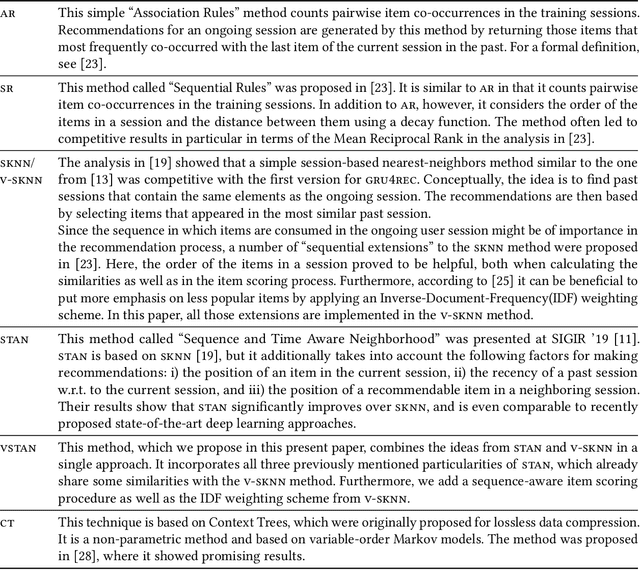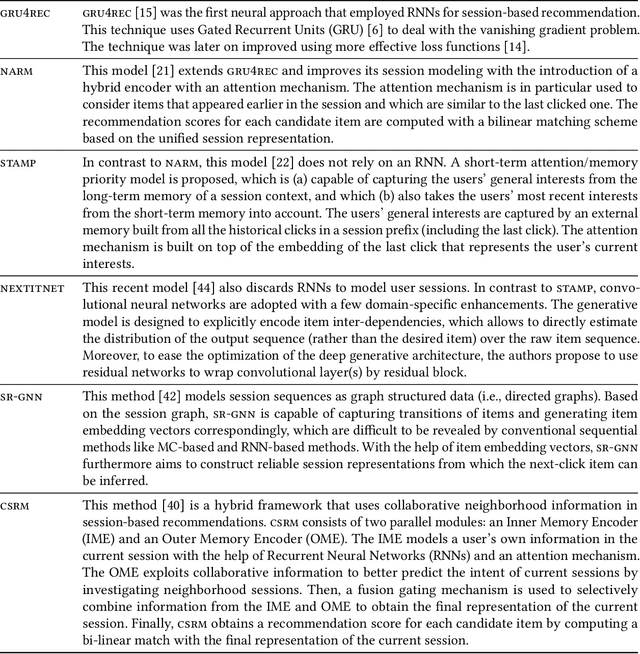Malte Ludewig
Empirical Analysis of Session-Based Recommendation Algorithms
Oct 28, 2019



Abstract:Recommender systems are tools that support online users by pointing them to potential items of interest in situations of information overload. In recent years, the class of session-based recommendation algorithms received more attention in the research literature. These algorithms base their recommendations solely on the observed interactions with the user in an ongoing session and do not require the existence of long-term preference profiles. Most recently, a number of deep learning based ("neural") approaches to session-based recommendations were proposed. However, previous research indicates that today's complex neural recommendation methods are not always better than comparably simple algorithms in terms of prediction accuracy. With this work, our goal is to shed light on the state-of-the-art in the area of session-based recommendation and on the progress that is made with neural approaches. For this purpose, we compare twelve algorithmic approaches, among them six recent neural methods, under identical conditions on various datasets. We find that the progress in terms of prediction accuracy that is achieved with neural methods is still limited. In most cases, our experiments show that simple heuristic methods based on nearest-neighbors schemes are preferable over conceptually and computationally more complex methods. Observations from a user study furthermore indicate that recommendations based on heuristic methods were also well accepted by the study participants. To support future progress and reproducibility in this area, we publicly share the session-rec evaluation framework that was used in our research.
Evaluation of Session-based Recommendation Algorithms
Oct 30, 2018



Abstract:Recommender systems help users find relevant items of interest, for example on e-commerce or media streaming sites. Most academic research is concerned with approaches that personalize the recommendations according to long-term user profiles. In many real-world applications, however, such long-term profiles often do not exist and recommendations therefore have to be made solely based on the observed behavior of a user during an ongoing session. Given the high practical relevance of the problem, an increased interest in this problem can be observed in recent years, leading to a number of proposals for session-based recommendation algorithms that typically aim to predict the user's immediate next actions. In this work, we present the results of an in-depth performance comparison of a number of such algorithms, using a variety of datasets and evaluation measures. Our comparison includes the most recent approaches based on recurrent neural networks like GRU4REC, factorized Markov model approaches such as FISM or FOSSIL, as well as simpler methods based, e.g., on nearest neighbor schemes. Our experiments reveal that algorithms of this latter class, despite their sometimes almost trivial nature, often perform equally well or significantly better than today's more complex approaches based on deep neural networks. Our results therefore suggest that there is substantial room for improvement regarding the development of more sophisticated session-based recommendation algorithms.
 Add to Chrome
Add to Chrome Add to Firefox
Add to Firefox Add to Edge
Add to Edge